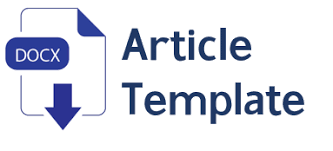Peran Strategis Intellectual Capital dalam Mendorong Kinerja Keuangan Institusi Keuangan Syariah
DOI:
https://doi.org/10.59086/jak.v3i3.646Keywords:
Intellectual capital, Kinerja Keuangan, Institusi Keuangan Syaraih, Jakarta Islamic IndexAbstract
This study aims to analyze the influence of Intellectual Capital on the financial performance of Islamic financial institutions in Indonesia, using a case study of Bank BRI Syariah and Bank BTPN Syariah, both listed in the Jakarta Islamic Index 70 (JII70). A quantitative and causal approach was applied, utilizing secondary data analyzed through the iB-VAIC model to measure Intellectual Capital and Return on Assets (ROA) as the indicator of financial performance. The analysis involved descriptive statistics, normality testing, and panel data regression using EViews 9. The results show that Intellectual Capital has a positive and significant effect on ROA. These findings reinforce the view that efficiency in managing intellectual resources—such as human capital, information systems, and customer relations—can enhance the profitability of Islamic banks. This research aligns with the Resource-Based View and the Theory of Intellectual Capital, which highlight the strategic role of intangible assets. However, the study has limitations in terms of sample size, the scope of variables, and the short observation period. The implications suggest that both management and regulators should give greater attention to the management and reporting of intellectual capital to sustainably enhance the competitiveness and financial performance of Islamic banks.
References
Abdullahi, S., & Salami, A. O. (2019). Islamic banking and economic resilience: Evidence from Nigeria. International Journal of Islamic and Middle Eastern Finance and Management, 12(3), 375–394.
Adur, M. D. (2018). Analisis Kinerja Keuangan pada Koperasi Simpan Pinjam. Jurnal Bisnis dan Manajemen, 5(2), 110–119.
Ahmed, H., Islam, M. T., & Hasan, M. M. (2021). Does intellectual capital impact financial performance? Evidence from Islamic banks. Journal of Islamic Accounting and Business Research, 12(6), 901–920.
Alharbi, A. (2017). Development of the Islamic Banking System. Journal of Islamic Banking and Finance, 5(1), 1–11.
Almira, N. P. A. K. (n.d.). Analisis Pengaruh Return on Asset (ROA) terhadap Kinerja Keuangan Perusahaan. [Skripsi atau jurnal tidak disebutkan secara rinci].
Almutairi, A. R., & Quttainah, M. A. (2021). Corporate governance and performance of Islamic banks: a meta-analysis. International Journal of Islamic and Middle Eastern Finance and Management, 14(2), 341–361.
Alsharif, M., Salameh, R., & Bino, A. (2020). Profitability and financial performance: Islamic vs conventional banks. International Journal of Emerging Markets, 15(5), 915–934.
Andreeva, T., Garanina, T., & Sergeeva, A. (2019). Intellectual capital and its impact on firm performance: Evidence from emerging markets. Journal of Intellectual Capital, 20(4), 1–19.
Ariff, M., Khan, W. A., & Mohamad, S. (2021). Risk and performance of Islamic banks: Review and future directions. Pacific-Basin Finance Journal, 68, 101594.
Azmat, S., Skully, M., & Brown, K. (2020). Can Islamic banking increase financial inclusion? Journal of Financial Services Research, 57(2), 113–139.
Barney, J. (1991). Firm resources and sustained competitive advantage. Journal of Management, 17(1), 99–120.
Buallay, A. (2019). Intellectual capital and performance of Islamic and conventional banks: empirical evidence from the Gulf Cooperation Council countries. Journal of Management Development, 38(7), 518–535.
Desmayenti. (2012). Analisis Pengaruh Intellectual Capital terhadap Kinerja Keuangan Perusahaan. [Skripsi atau jurnal tidak disebutkan secara rinci].
Freeman, R. E., & Reed, D. L. (1983). Stockholders and stakeholders: A new perspective on corporate governance. California Management Review, 25(3), 88–106.
Ghosh, D. (2021). Banking performance and financial ratios: A comparative study. Journal of Economic and Administrative Sciences, 37(2), 205–223.
Ghosh, S., & Mondal, A. (2022). Intellectual capital and firm performance: Evidence from Indian banks. Journal of Intellectual Capital, 23(1), 173–196.
Ihyaul Ulum, M. (2008). Intellectual Capital: Konsep dan Kajian Empiris. Yogyakarta: Graha Ilmu.
Ihyaul Ulum, M. (2017). Model Pengukuran Kinerja Intellectual Capital pada Perbankan Syariah di Indonesia dengan iB-VAIC. Disertasi, Universitas Brawijaya.
Joshi, M., Cahill, D., & Sidhu, J. (2021). Intellectual capital performance of banking sector in emerging economies: A comparison of Islamic and conventional banks. Journal of Intellectual Capital, 22(2), 347–369.
Kamath, B. (2021). Performance of Indian banks: Role of intellectual capital. Asian Journal of Accounting Research, 6(1), 1–12.
Khan, M. I., Rehman, R. U., & Saeed, M. M. (2023). The impact of intellectual capital on financial performance of Islamic banks: Empirical evidence from South Asia. Journal of Islamic Accounting and Business Research, 14(1), 100–120. https://doi.org/10.1108/JIABR-06-2022-0147
Nawaz, T., & Haniffa, R. (2017). Determinants of financial performance of Islamic banks: A meta-analysis. Journal of Economic Surveys, 31(5), 1104–1130. https://doi.org/10.1111/joes.12113
Organisation for Economic Co-operation and Development (OECD). (1999). Measuring and Reporting Intellectual Capital: Experience, Issues, and Prospects. Paris: OECD.
Pulic, A. (1999). VAIC – an Accounting Tool for IC Management. International Journal of Technology Management, 20(5-8), 702–714.
Pulic, A. (1999). Value creation efficiency analysis of Croatian banks 1996–2000. Available at SSRN: https://ssrn.com/abstract=196718
Rehman, R. U., Khan, M. I., & Ullah, S. (2021). Relational capital and performance of Islamic banks: The mediating role of corporate reputation. Borsa Istanbul Review, 21(4), 282–291. https://doi.org/10.1016/j.bir.2021.01.001
Taliyang, S. M., & Jusoh, M. A. (2020). Intellectual capital and firm performance in Malaysian public listed companies. International Journal of Financial Research, 11(2), 105–114.
Ulum, I. (2008). Intellectual Capital: Konsep dan Kajian Empiris (Model VAIC™). Graha Ilmu.
Ulum, I. (2013). Intellectual Capital Performance of Indonesian Islamic Banking Sector: Measurement using VAIC (Value Added Intellectual Coefficient) Model. Asian Journal of Finance & Accounting, 5(1), 75–88. https://doi.org/10.5296/ajfa.v5i1.3261
Ulum, I., Ghozali, I., & Purwanto, A. (2020). Intellectual capital performance: A comparative study between Islamic and conventional banks in Indonesia. International Journal of Economics and Business Administration, 8(3), 406–417.
Wernerfelt, B. (1984). A resource-based view of the firm. Strategic Management Journal, 5(2), 171–180.
Xu, J., & Wang, B. (2018). Intellectual capital, financial performance and companies’ sustainable growth: Evidence from the Korean manufacturing industry. Sustainability, 10(12), 4651.
Zéghal, D., & Maaloul, A. (2020). Analysing value added as an indicator of intellectual capital and its consequences on company performance. Journal of Intellectual Capital, 21(1), 48–70.
Downloads
Published
How to Cite
Issue
Section
License

This work is licensed under a Creative Commons Attribution 4.0 International License.
Mandiri Jurnal Akuntansi dan Keuangan
Publisher Lembaga Riset Ilmiah
© 2025

This work is licensed under a Creative Commons Attribution 4.0 International License.












